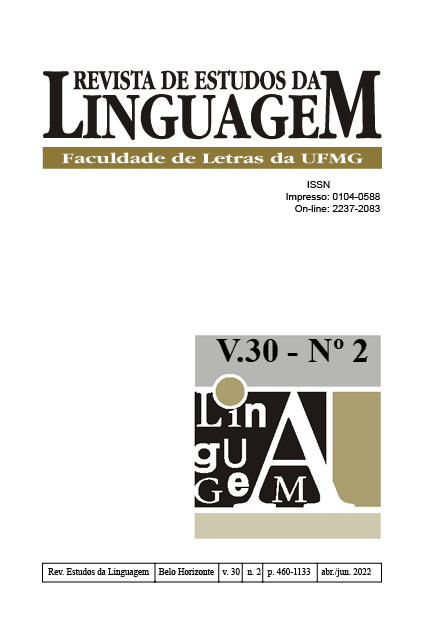A construção lexical SNLoc atributiva em uso no Português Contemporâneo
DOI:
https://doi.org/10.17851/2237-2083.30.2.573-605Palabras clave:
sintagma nominal, locativo, construção atributiva, construcionalização lexical, linguística funcional centrada no usoResumen
Baseada na Linguística Funcional Centrada no Uso, a presente pesquisa busca investigar a construção SNLoc atributiva no Português Brasileiro Contemporâneo. Valendo-nos do Corpus do Português para analisar as sincronias passadas e do Corpus Discurso & Gramática para os usos do século XX, realizamos uma pesquisa pancrônica em um estudo prioritariamente qualitativo, a fim de comprovar a hipótese de que SNLoc atributiva é resultante de construcionalização lexical. A mudança linguística se inicia em contextos atípicos, nos usos dêiticos físicos e catafóricos; e, por meio de usos dêiticos anafóricos e virtuais, que configuram contextos críticos, chega-se à construção SNLoc atributiva, em um contexto de isolamento. Nessa construção, nota-se a cliticização do locativo, que se entrincheira ao SN, formando um novo esquema construcional, no nível do léxico. Assim, o locativo unido ao SN assume uma semântica de imprecisão, distinta do original, e juntos constituem a construção híbrida SNLoc atributiva, um novo pareamento forma e sentido, um esquema de tipo endocêntrico, complexo, produtivo e parcialmente composicional. A macroconstrução SNLoc atributiva de uso corriqueiro no português contemporâneo, através de construtos de microconstruções motivados por contextos semântico-pragmáticos específicos, tem maior produtividade na modalidade falada e em sequências de fundo narrativo.





